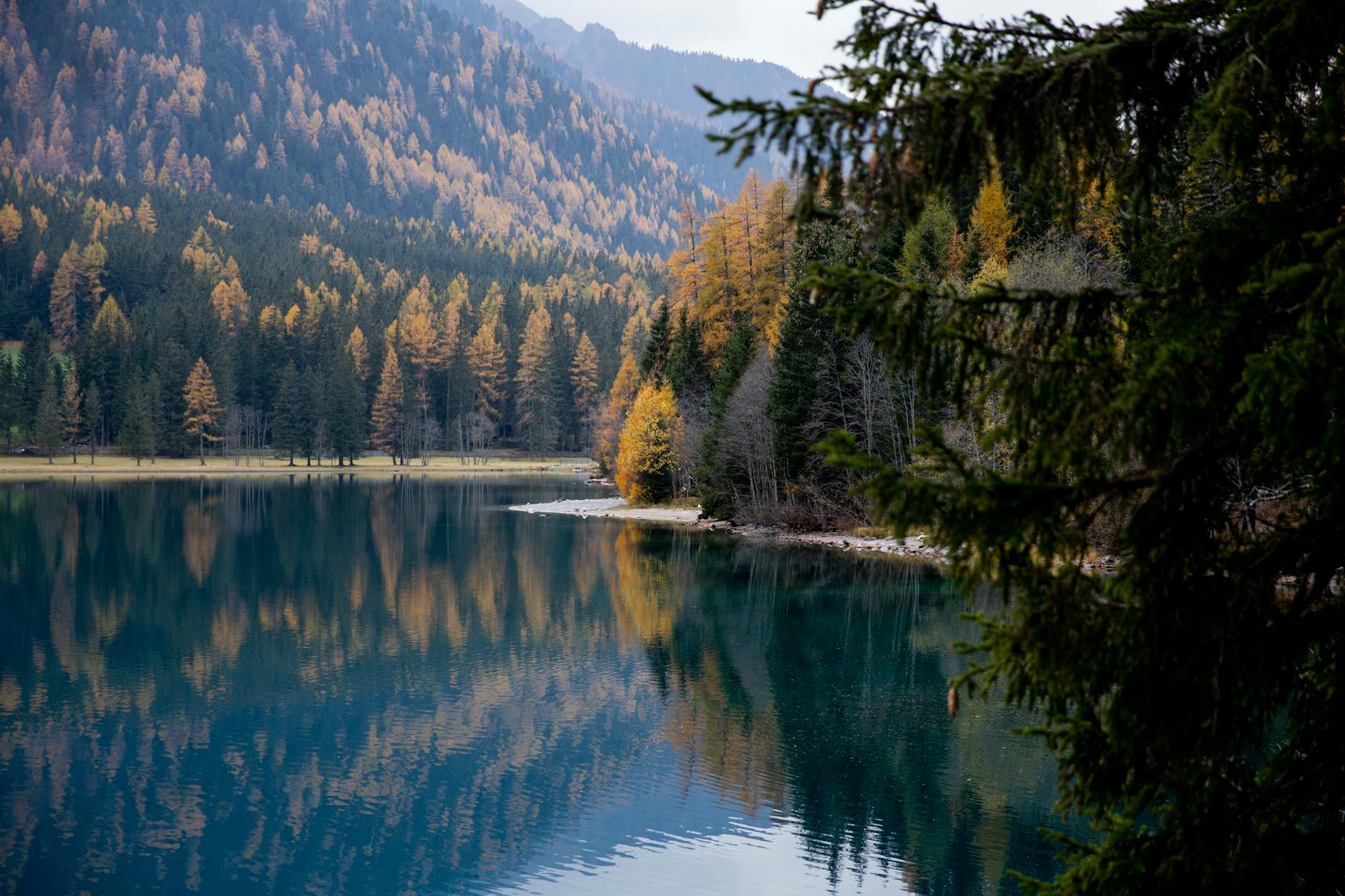How to Balance Health and Adventure on Your Travels in Australia

Planning Your Trip
Setting Your Goals
G'day, Jack! As we embark on planning the perfect adventure, it’s crucial to start by setting clear goals for your trip. If you’re anything like me, you probably juggle an action-packed work schedule and understand the importance of taking a well-deserved break for some real adventure. Whether it’s diving into African tours, embarking on Arctic cruises, or exploring the wonders of South America tours, nailing down your goals helps streamline your planning process.
Choosing Destinations
Choosing the right destinations is key. Melbourne serves as a fantastic launching pad for your travels. With an abundance of vibrant and adventurous spots just a flight away, the world is your oyster. Picture yourself wandering through the wilds of Africa or braving the icy tundras on an Arctic cruise. Pro tip: aim for places that offer authentic experiences. You wouldn’t want your adventure to be dulled by tourist traps!
Building an Itinerary
Creating an itinerary can feel overwhelming, but it’s the backbone of a well-structured trip. Your itinerary should balance adventure and downtime so you return refreshed rather than exhausted.
Here are a few steps to consider:
- Research: Use travel blogs, forums, and vlogs to gather firsthand accounts and reviews.
- Allocate Time: Ensure you have ample time to explore major attractions. Overpacking your schedule can lead to stress.
- Local Knowledge: Incorporate local tips and advice to uncover hidden gems. A quick chat with locals might reveal must-see spots you’d otherwise overlook.
- Rest Days: Allocate some buffer days. Use these to recharge, ensuring you remain energetic and ready for your next adventure.
Remember, Federation Square is a fantastic place to start your research locally. With its numerous galleries and cultural touchpoints, it can inspire and inform your travel plans.
By following these steps, you’ll be well-prepared to embark on your adventure, fully aware of what you want to achieve and how to make the most out of every moment.
Staying Healthy
Fitness Regimens
Staying active on your travels is crucial, especially when you’re keen on experiencing everything from a bustling cityscape to rugged nature trails. Incorporate simple exercises into your daily routine, such as morning stretches or a brisk walk. Melbourne’s parks, like the Royal Botanic Gardens, are ideal for a peaceful morning jog. Additionally, consider joining local fitness groups or classes to stay motivated and meet fellow travellers.
Nutrition Tips
Eating well while travelling can be challenging, but it’s key to maintaining your energy levels. Embrace local produce by visiting farmers' markets, such as the South Melbourne Market, to stock up on fresh fruits and vegetables. Balance your diet with lean proteins and whole grains. If you’re indulging in Melbourne’s rich food scene, opt for healthier choices like poke bowls or grilled seafood.
Rest and Recovery
Travelling, especially on activities-filled days, can be exhausting. Ensure you get adequate rest by selecting comfortable accommodations. Melbourne offers a range of options, from luxurious hotels to serene bed and breakfasts. Listen to your body—if you’re feeling worn out, take it slow. Use facilities like hotel spas or nearby wellness centres to unwind and rejuvenate. Such breaks are essential, whether you’re preparing for South American tours or Africa tours in the future.
Maintaining these healthy habits will not only boost your travel experience but also ensure you’re fit to explore even more exciting destinations.
Adventure Activities
Thrilling Hikes
G'day adventurers! If you're looking for a good dose of heart-pumping excitement while exploring the natural beauty of Australia, Melbourne offers some appealing hikes to consider. From the Dandenong Ranges to the Grampians, there's no shortage of trails to conquer. You’ll find the variety fascinating—there are well-trodden tracks for beginners as well as rugged terrains for seasoned hikers. Make sure to carry a sturdy set of hiking boots and a water bottle to keep hydrated during your exploration.
Water Sports
For those who enjoy splashing about, Melbourne's coastline offers various exhilarating water sports. Whether it’s surfing at Bells Beach or paddleboarding in Port Phillip Bay, you're in for a treat. These activities not only provide a thrilling experience but also an excellent workout. Remember to wear a wetsuit for those cooler waters and always heed local swimming advisories to ensure your safety.
Wildlife Encounters
Australia is a paradise for wildlife enthusiasts, and Melbourne offers some unique spots to get up close with native animals. A visit to Phillip Island can give you a firsthand look at the adorable little penguins returning from their fishing expeditions. For something truly extraordinary, consider planning a couple of high-adrenaline trips, like Machu Picchu tours or a Galapagos cruise, both of which offer a chance to see wildlife in its most pristine habitats. Although these are international destinations, their experience offers invaluable tips for wildlife adventures.
Make sure to pack a good pair of binoculars for bird watching or spotting distant animals during your hiking and water adventures. And while it’s tempting to get close, always remember to maintain a respectful distance from wildlife to ensure both your safety and theirs.
By incorporating these exciting activities, your Melbourne adventure will be full of memorable experiences. From thrilling hikes to serene wildlife encounters, there's an adventure for everyone. Enjoy the wild!
Safety Precautions
Emergency Preparedness
As a seasoned Melbourne-based travel adviser, one thing I always emphasize is the importance of being prepared for emergencies when travelling. When you're out and about, especially in remote areas, it's essential to have a first aid kit and know the basics of emergency first aid. Make sure you have important contact numbers and keep a list of local hospitals handy. It’s wise to get travel insurance that covers Kenya safari and other international adventures. This can offer peace of mind and quick assistance when you need it the most.
Navigating Remote Areas
Exploring remote areas can be immensely rewarding, but it does come with challenges. Always inform someone about your travel plans and expected return times. Carry a reliable map and a GPS device to navigate unfamiliar territories. Make sure your vehicle is well-maintained and equipped with spare tyres, fuel, and essential repair tools. Research the area’s weather patterns and terrain, and avoid travelling during adverse conditions. In regions similar to those visited on Central America tours, understand the local wildlife and potential hazards to stay safe.
Managing Risks
Being adventurous is fantastic, but managing risks effectively is crucial for a safe trip. Research your destination’s specific risks, such as potential weather hazards or local wildlife. Always follow park ranger guidelines and respect local regulations, as these are there to protect both you and the environment. Stay hydrated and take regular breaks to avoid physical exhaustion. Wear appropriate gear for your activities, whether it's hiking boots for a trek or life jackets for water sports. By understanding and mitigating risks, you make sure your adventures are thrilling yet safe.
Common Mistakes
Ignoring Physical Limits
One of the biggest blunders seasoned travellers can make is ignoring their physical limits. It's tempting to want to tick off every attraction, but it’s paramount to listen to your body. Pushing yourself too hard can lead to exhaustion or, worse, injury. If you’re feeling fatigued, take a leisurely stroll through the Melbourne Zoo instead of a strenuous hike. Remember, it’s not about how much you do but how much you enjoy.
Skipping Safety Checks
Skipping essential safety checks is another common mistake. It’s always wise to perform a quick review before engaging in any adventure activities. Make sure your hiking gear is in good condition and utilise local resources, like the visitor centres at Wilsons Promontory, for reliable information. Speaking with park rangers can give you invaluable insights into trail safety and weather conditions. This small step can make a big difference.
Overplanning Activities
While it’s great to have an itinerary, overplanning can turn your trip into a frantic race instead of a relaxing journey. Allow yourself some flexibility to unwind and soak in the local culture. Instead of squeezing in multiple back-to-back events, perhaps spend an extra hour at Federation Square, enjoying a café latte while people-watching. Sometimes, the best moments are the unplanned ones.
Embrace these tips to avoid common travel pitfalls in Australia. It will make your experience more memorable, safer, and most importantly, enjoyable.


